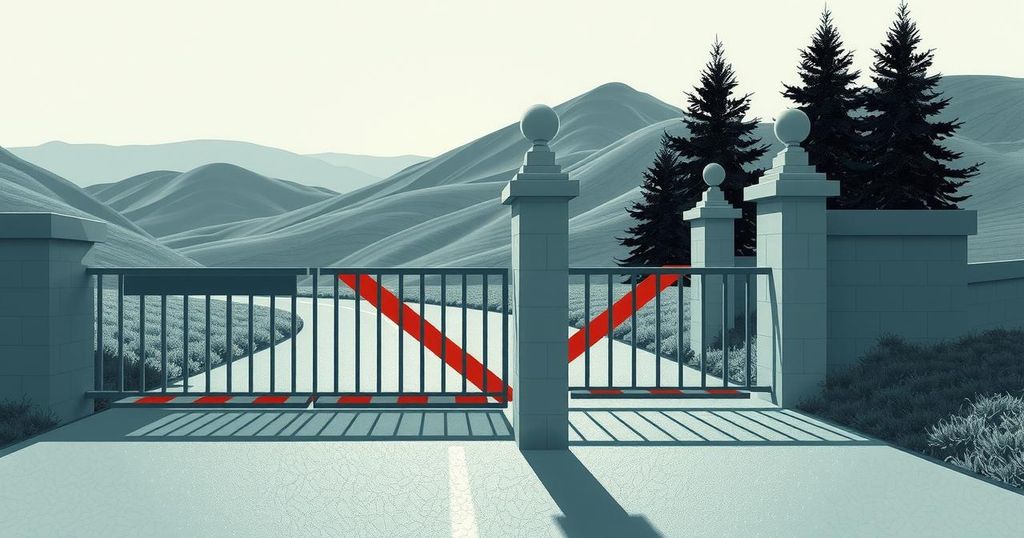Ecuador’s President Daniel Noboa has announced a border closure from February 8 to 10 in anticipation of the presidential election, citing concerns over destabilization by armed groups. He has also increased military presence and reported arrests of armed individuals impersonating police. Ecuador faces significant violence from drug trafficking gangs, prompting Noboa to implement security measures to protect the elections.
Ecuadorian President Daniel Noboa has announced the closure of the nation’s borders from Saturday through Monday, coinciding with the first round of the presidential election on Sunday, in which he is a participant. This decision is a response to perceived destabilization attempts by armed groups. Noboa communicated this decision via his social media account, emphasizing the urgent need for security measures.
The 37-year-old leader has also ordered an increase in military presence along the borders and the immediate militarization of ports to further reinforce security. While campaigning for re-election, Noboa reported the arrest of twelve individuals disguised in police and army uniforms, alleging they were armed with rifles, ammunition, and a drone, which he described as actions by “narco-terrorists” attempting to disrupt the country’s stability.
Daniel Noboa, the son of a wealthy banana entrepreneur, assumed office in November 2023 to serve the remaining term of his predecessor, Guillermo Lasso, who called for early elections to evade impeachment amid corruption allegations. The current political climate in Ecuador has been marked by violence following the escape of a drug lord from prison, prompting Noboa to declare an “internal armed conflict.”
Ecuador faces significant challenges, with numerous gangs engaged in drug trafficking, kidnappings, and extortion, contributing to increased violence within its population of 17 million. Traditionally viewed as a safe haven between Peru and Colombia, Ecuador has become a key location for drug logistics, resulting in soaring crime rates, including a staggering homicide rate of 47 per 100,000 people in 2023.
Noboa’s administration has implemented states of emergency and deployed military forces to counteract the gang violence, reportedly succeeding in reducing the homicide rate to 38 per 100,000 by 2024. The political landscape remains contentious, with Noboa facing his left-wing challenger, lawyer Luisa Gonzalez, in the upcoming presidential elections. Notably, indigenous leader Leonidas Iza is also among the candidates in the race.
Ecuador is grappling with escalating violence largely attributed to drug trafficking and organized crime. The situation has worsened over recent years, turning Ecuador into a significant operational center for drug shipments originating in neighboring cocaine-producing countries. The current climate necessitates heightened security measures and military presence to combat the pervasive influence of gangs that are wreaking havoc across the nation, undermining security and stability.
President Daniel Noboa’s border closure reflects an acute response to perceived threats from armed groups as Ecuador approaches critical elections. With increasing violence from drug-related gangs, the government’s militarization efforts aim to safeguard electoral integrity while addressing public safety concerns. The upcoming elections are poised to be pivotal in shaping the country’s future amidst such turmoil.
Original Source: www.voanews.com




